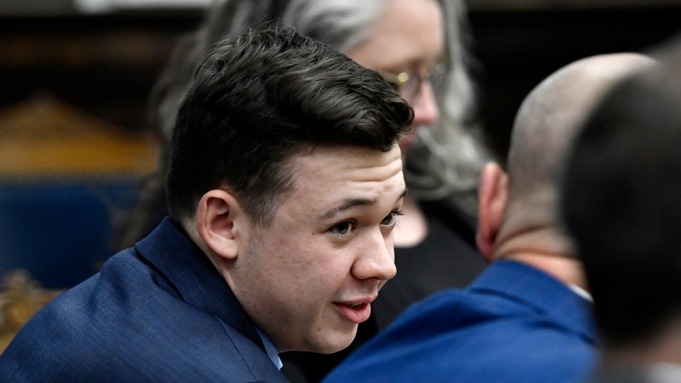
Kyle Rittenhouse Found Not Guilty Of All Charges in Kenosha Shootings
Kyle Rittenhouse was acquitted on all charges in the August 2020 shootings of three men, including two who were killed. The teen’s attorneys argued that the teen opened fire in self-defense.
Rittenhouse, 18, teared up and embraced his attorney as the not guilty verdict was read. The teen had faced five charges, including first-degree intentional homicide, which carries a sentence of life in prison.
The jury, which was made up of seven women and five men, deliberated for three and a half days and heard from more than 30 witnesses over two weeks of testimony.
The teen’s attorney, Mark Richards, described how Rittenhouse felt leaving the courthouse. “A huge sense of relief. He wished none of this would have happened. He is thankful the jury got to hear the real story – the true story.”
On August 25, 2020, Rittenhouse, who was 17 at the time, went to Kenosha during protests that erupted after police shot and wounded Jacob Blake. He testified that he intended to help protect local businesses and provide first aid. Armed with an AR-15 style rifle, Rittenhouse ended up amid the crowd and shot three men, killing Joseph Rosenbaum and Anthony Huber and wounding Gaige Grosskreutz.
In a statement, Huber’s family said they were “heartbroken and angry” over the verdict. “Today’s verdict means there is no accountability for the person who murdered our son. It sends an unacceptable message that armed civilians can show up in any town, incite violence, and then use the danger they have created to justify shooting people in the street,” they said.
At trial, Rittenhouse and his attorneys said he only fired in self-defense, while the prosecution painted him as the aggressor. In this case, the burden of proof fell on the prosecutors to prove the shooting was not justified.
The trial heated up when Rittenhouse took the stand in his defense. At one point, he broke into tears when his attorneys questioned him about why he fatally shot Rosenbaum. “I didn’t do anything wrong, I was defending myself,” Rittenhouse said.
At closing arguments, prosecutors disputed the defense’s self-defense claim, telling the jury that Rittenhouse was an aggressor, a liar, and an “active shooter” who did not face an imminent threat of great bodily harm or death that night. Instead, the state argued that Rittenhouse was the one who provoked the violence and posed a threat to others.
Reacting to the verdict, the lead prosecutor, Thomas Binger, said, “While we are disappointed with the verdict, it must be respected. We are grateful to the members of the jury for their diligent and thoughtful deliberations.”

